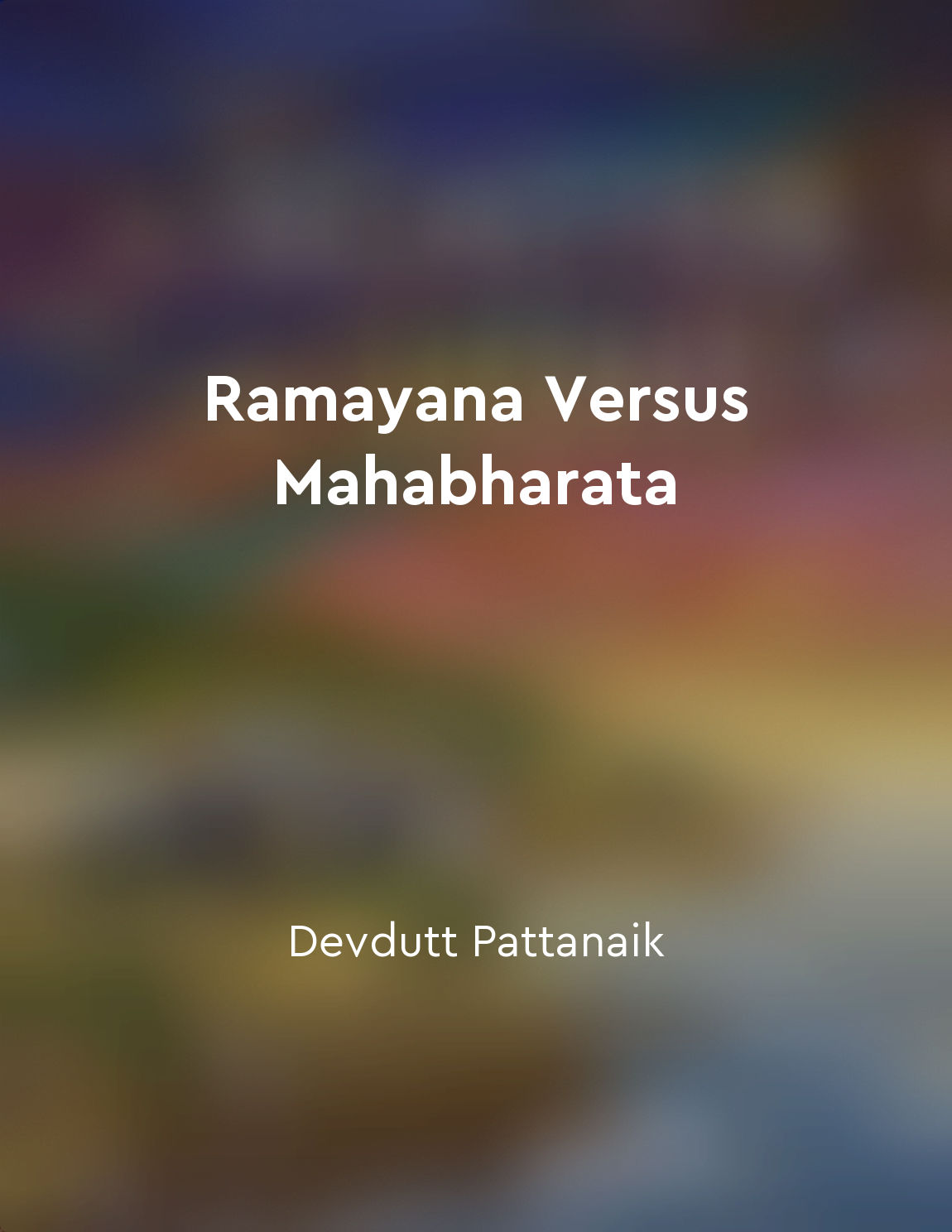Audio available in app
Betrayal and loyalty are recurring motifs from "summary" of Mahabharata Unravelled by Ami Ganatra
Throughout 'Mahabharata Unravelled', the themes of betrayal and loyalty stand out as prominent motifs that weave through the intricate tapestry of the epic. These themes are not merely isolated incidents but recur repeatedly, creating a complex web of relationships and conflicts that drive the narrative forward. Betrayal, in particular, is a pervasive force that lurks beneath the surface of many characters' actions. From the treachery of Duryodhana towards the Pandavas to the deceitful tactics employed by Karna, the epic is rife with instances of characters betraying the trust of others for personal gain. This recurring motif of betrayal serves to highlight the darker aspects of human nature and the consequences of succumbing to one's selfish desires at the expense of others. Conversely, loyalty is portrayed as a rare and precious quality that is highly valued in the world of the Mahabharata. Characters like Bhishma and Krishna exemplify unwavering loyalty towards their respective causes, even in the face of insurmountable odds. Their steadfast commitment to their principles stands in stark contrast to the fickle nature of betrayal that pervades the epic, serving as a beacon of hope and righteousness amidst the chaos and turmoil. The interplay between betrayal and loyalty creates a tension that drives the characters' actions and decisions, leading to dramatic consequences that shape the course of the epic. Whether it is Yudhishthira's betrayal of Draupadi in the infamous game of dice or Arjuna's unwavering loyalty to Krishna on the battlefield of Kurukshetra, these themes serve as a moral compass that guides the characters through their trials and tribulations.- The recurring motifs of betrayal and loyalty in 'Mahabharata Unravelled' serve to illuminate the complexities of human relationships and the eternal struggle between good and evil. By exploring these themes in depth, the epic offers valuable insights into the nature of morality, duty, and the consequences of one's actions in the grand tapestry of life.
Similar Posts

Trust is slowly rebuilt
As time went on, I found myself opening up to him little by little. It wasn't easy, of course. Trust doesn't just magically app...
Redemption is possible, but not easy
Redemption is a tricky business. It’s hard to do, but not impossible. A person can always change, even after they’ve done somet...
The binding of Duryodhana by Bhima
In the great Indian epic Mahabharata, the story of the binding of Duryodhana by Bhima holds a significant place. It is a tale o...

The value of knowledge
Knowledge is considered to be a priceless treasure, more valuable than any material possession. It is the key to understanding ...
Critique of society
One of the central themes that runs through the novel is a sharp criticism of the society of sixteenth-century England. Twain's...

Attaining liberation from material bondage
The concept of attaining liberation from material bondage is central to the teachings of the Bhagavad Gita. The Gita teaches us...
Dark secrets fuel hatred
Hidden truths have a way of festering, like a wound left untended. They seep into the cracks and crevices of the mind, poisonin...
Universe ruled by interstellar noble families
In the far future of humankind, power and influence are concentrated in the hands of a few powerful noble families who control ...
Bhagavad Gita teachings by Lord Krishna
The Bhagavad Gita is a part of the great epic Mahabharata, where Lord Krishna imparts his teachings to Arjuna on the battlefiel...

Ramayana's Ayodhya is peaceful, Mahabharata's Kurukshetra is battlefield
In the Ramayana, Ayodhya is portrayed as a peaceful kingdom where righteousness and order prevail. The city is described as a u...

